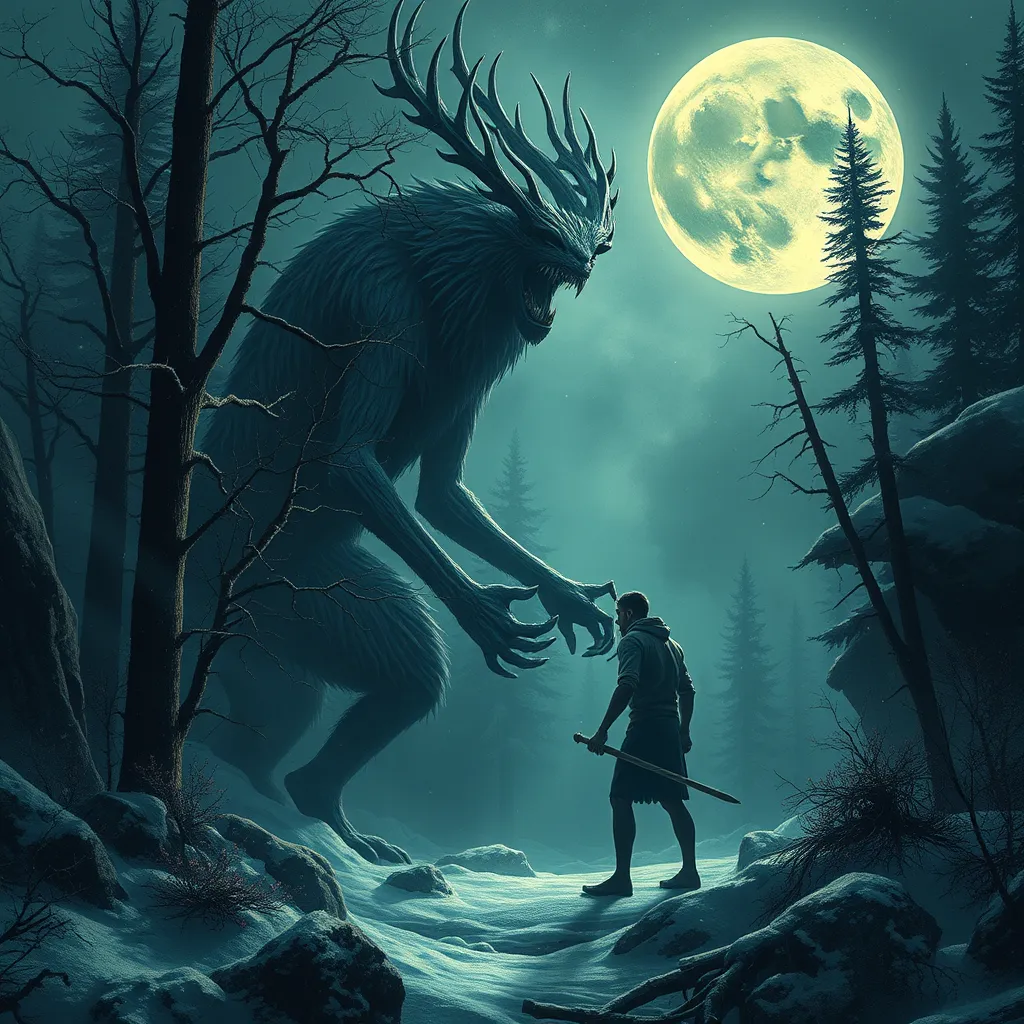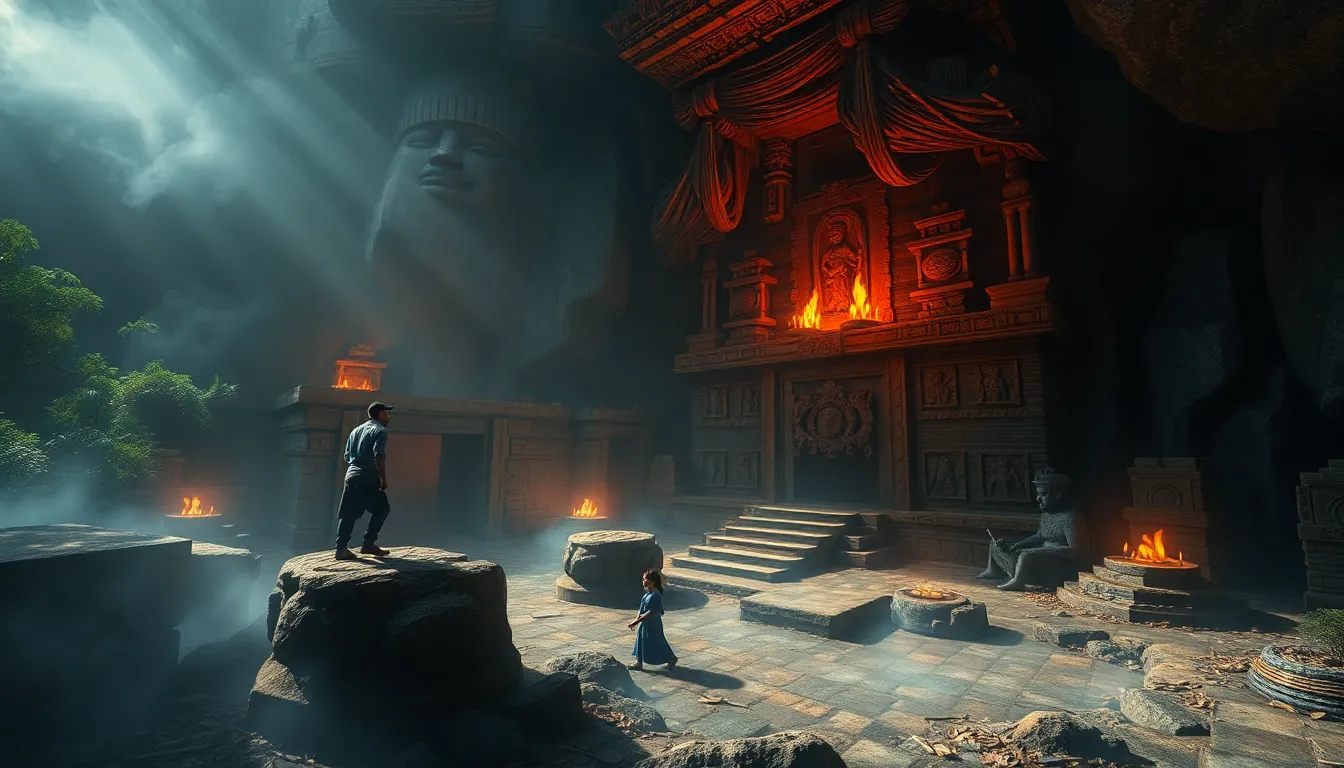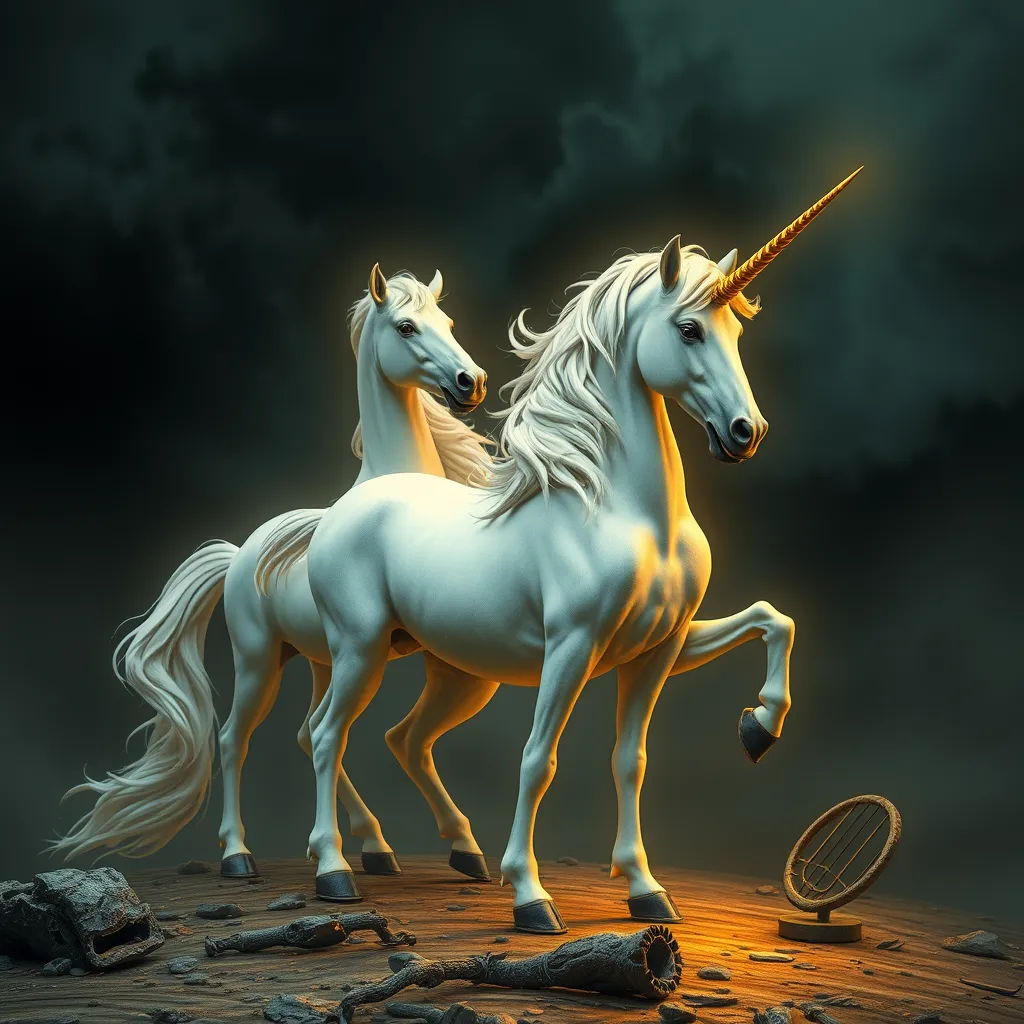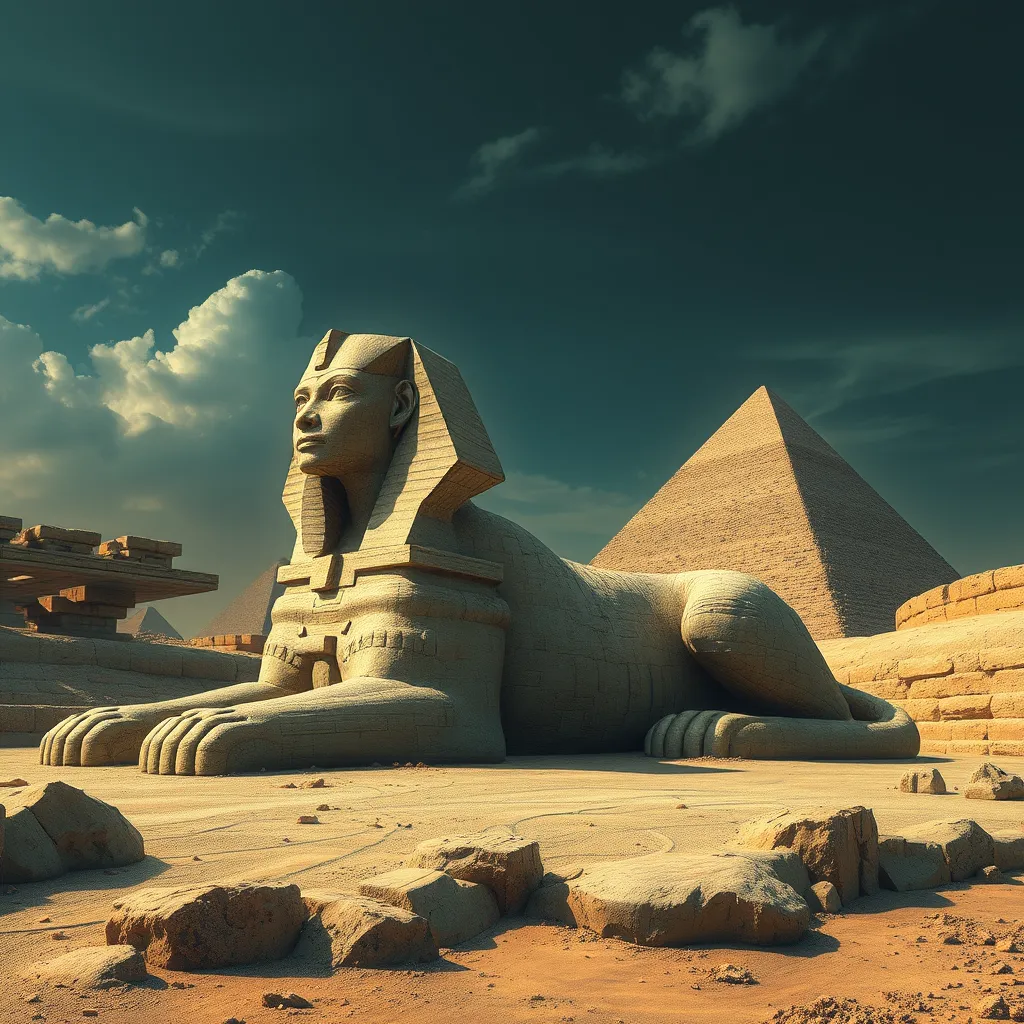Wendigo and the Anthropocene: Exploring the Relevance of This Myth in a Changing World
I. Introduction
The Wendigo is a prominent figure in Indigenous folklore, particularly among the Algonquian-speaking peoples of North America. Often described as a malevolent spirit associated with winter, starvation, and greed, the Wendigo embodies the consequences of unchecked consumption and the breakdown of social bonds. In contrast, the Anthropocene is a term used to describe the current geological epoch, characterized by significant human impact on the Earth’s geology and ecosystems. This article aims to explore the relevance of the Wendigo myth in contemporary environmental and social contexts, highlighting its implications for understanding the challenges we face in the Anthropocene.
II. The Wendigo Myth: Origins and Interpretations
The Wendigo myth has deep roots in Algonquian culture, where it serves as both a cautionary tale and a reflection of the community’s values. Historically, the Wendigo was believed to be a once-human creature transformed by starvation and the desperate act of cannibalism. This transformation symbolizes the loss of humanity and community, illustrating the dire consequences of succumbing to greed and isolation.
Key interpretations of the Wendigo myth include:
- Greed: The Wendigo embodies insatiable hunger and the destructive nature of greed.
- Starvation: The myth serves as a reminder of the consequences of environmental imbalance and scarcity.
- Social Breakdown: The Wendigo reflects the dangers of individualism and the erosion of communal ties.
Variations of the myth exist across different Indigenous communities, each adding unique elements that reflect local cultures and values. However, the central themes of consumption and moral decay remain consistent.
III. The Anthropocene: Understanding the Era of Human Impact
The Anthropocene is defined as a geological epoch that marks the significant impact of human activity on the Earth’s systems. Characteristics of this era include:
- Climate Change: Global warming and its associated effects, such as extreme weather events and rising sea levels.
- Biodiversity Loss: The ongoing extinction of species and the degradation of ecosystems.
- Pollution: The introduction of harmful substances into the environment and their effects on health and biodiversity.
The Anthropocene poses profound cultural and ethical implications. It challenges our understanding of humanity’s place in the natural world and raises questions about responsibility, sustainability, and the legacy we leave for future generations.
IV. Parallels Between the Wendigo and Anthropocene Challenges
There are striking parallels between the Wendigo myth and the challenges we face in the Anthropocene. The themes of consumption and excess, central to the Wendigo story, resonate with the current environmental crises:
- Consumption and Excess: The Wendigo’s endless hunger mirrors the unsustainable consumption patterns prevalent in modern society.
- Human Greed: The myth serves as a warning against the unchecked exploitation of resources, leading to environmental degradation.
- Modern Societal Issues: The Wendigo can be seen as a metaphor for contemporary issues such as capitalism, consumerism, and the isolation experienced in urban environments.
V. Indigenous Perspectives on Environmental Stewardship
Indigenous communities possess a wealth of traditional ecological knowledge that emphasizes stewardship and sustainability. This knowledge is increasingly relevant as we confront the environmental challenges of the Anthropocene. Key aspects include:
- Traditional Ecological Knowledge: Indigenous practices often integrate a deep understanding of local ecosystems and biodiversity.
- Role in Climate Action: Indigenous communities are at the forefront of climate advocacy, fighting to protect their lands and resources.
- Lessons from the Wendigo: The Wendigo myth teaches the importance of community, balance, and respect for nature, which can inform contemporary environmental ethics.
VI. The Psychological and Sociocultural Impact of the Anthropocene
The Anthropocene not only affects the environment but also has significant psychological and sociocultural impacts. One such concept is ‘Wendigo Psychosis’, which refers to a condition where individuals become obsessed with consuming more than they need, often at the expense of their health and relationships. This modern interpretation highlights:
- Mental Health Challenges: Anxiety and depression are on the rise as people grapple with the realities of climate change and environmental degradation.
- Collective Trauma: Communities face shared trauma from environmental disasters, necessitating a focus on resilience and recovery.
- Community Resilience: Building strong community ties is essential for coping with the psychological toll of living in the Anthropocene.
VII. Reimagining the Wendigo in Contemporary Narratives
The Wendigo myth has found new life in contemporary literature, film, and art, evolving into a cautionary tale for future generations. This reimagining serves several purposes:
- Representation in Media: The Wendigo appears in various forms of storytelling, reflecting societal fears and challenges.
- Cautionary Tale: The myth warns against the dangers of greed and isolation, urging a return to communal values.
- Indigenous Storytelling: Embracing Indigenous narratives can foster environmental advocacy and enrich our understanding of sustainable practices.
VIII. Conclusion
The Wendigo myth remains highly relevant in the context of the Anthropocene. It serves as a powerful lens through which we can examine the consequences of our actions and the importance of community and balance in our relationship with the environment. As we face unprecedented challenges, it is crucial to integrate Indigenous perspectives into our environmental discourse. By learning from the past and embracing the teachings of the Wendigo, we can work towards shaping a sustainable future for generations to come.




